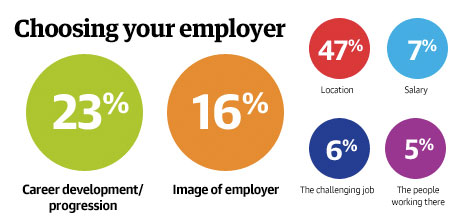Since 2016, 189 complaints of workplace bullying have been made to Ireland’s Health & Safety Authority – the lack of inclusion in a workplace can be detrimental to your business.
Inclusive, supportive, approachable – invincible. Why wouldn’t you want your workplace to be like that?
Here’s why inclusion will be crucial in 2020 & how your HR team can help make this a reality.
Inclusion: Why So Important?
If you have read this series so far, the talent war in Ireland won’t be new to you. With around 40,000 potential new jobs to be created in Ireland in 2020 forecasted already, recruitment is a busy sector. It’s safe to say that this, coupled with low unemployment, leaves Ireland in a stalemate when it comes to talent retention.
When somebody is working for your business or considering applying, the atmosphere, the team & the culture are everything. Yes, commutes and salaries are things to consider – but if your workplace isn’t inclusive of everyone, if colleagues do not put in the effort with each other, if the working environment is negative or toxic, then talent will simply move on.
Everyone is different and difference should be embraced by all throughout the organisation, with everyone’s strengths spotted and encouraged to grow.
An inclusive workplace where all people feel valued by each other, get on with each other and feel approachable with each other, is an invincible workplace.
Building An Inclusive Workspace
Inclusion is easier said than done – you have multiple hurdles to jump over; personality traits, age differences, varied interests, different backgrounds, the list is endless. Building an inclusive working environment can be a challenge, but it is a must if you want to keep staff satisfied & happy, and productivity at its peak.
Here’s just some ways in which you can lay those foundations to build a better inclusive workspace for your colleagues:
- Team Meetings
Team meetings need to be a regular occurrence – whether that’s in a boardroom, at the local coffee stop or over lunch, regular and productive team meetings will help build your team’s relationships with each other, make them feel that their work is valued by their colleagues and help to advance productivity in the long-run.
Holding regular team meetings lends more benefits than just making sure your team get on – it helps to get stuff done quicker and more efficiently; colleagues will feel that they can approach staff much more easily.
- Zero Tolerance for Exclusion
Come down hard on this – don't just hide behind your office door hoping change will happen overnight and all your colleagues will begin to get on. That isn’t going to happen.
Work cohesively with your HR team to carefully monitor for any signs of exclusion or bullying and once spotted, deal with it.
- Workplace Culture
Depending on the size of your business, this might be a short-term or long-term change. Mixing departmental reams regularly will offer colleagues an added opportunity to get to know different colleagues and branch out their work networks.
If you’re a smaller team, demonstrate with leadership that inclusion is high on your agenda by practicing it yourself – treat your colleagues to a coffee, include them on more client meetings – ensure that you practice what you preach in order to embed this approach within your culture.
Inclusive = Invincible
Make 2020 a success by ensuring your workplace breathes inclusion. Win the talent war by demonstrating that you take inclusion seriously and improve the working lives of your colleagues by taking a zero-tolerance approach to exclusion of any manner.
In 2020, an inclusive workplace might well mean an invincible workplace – make 2020 a success and get building an inclusive working environment.






 RSS Feed
RSS Feed